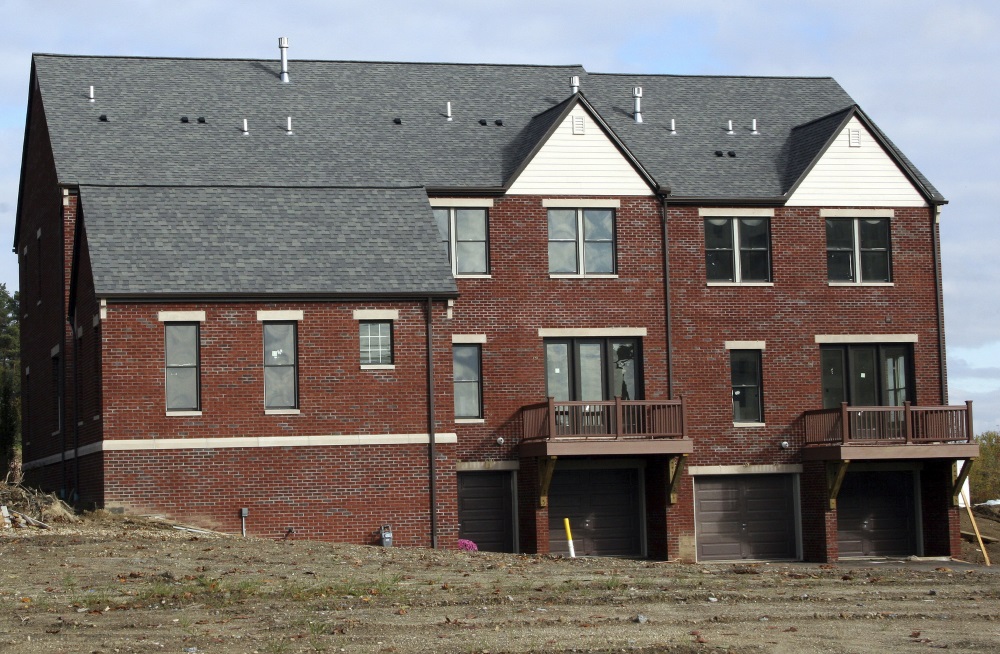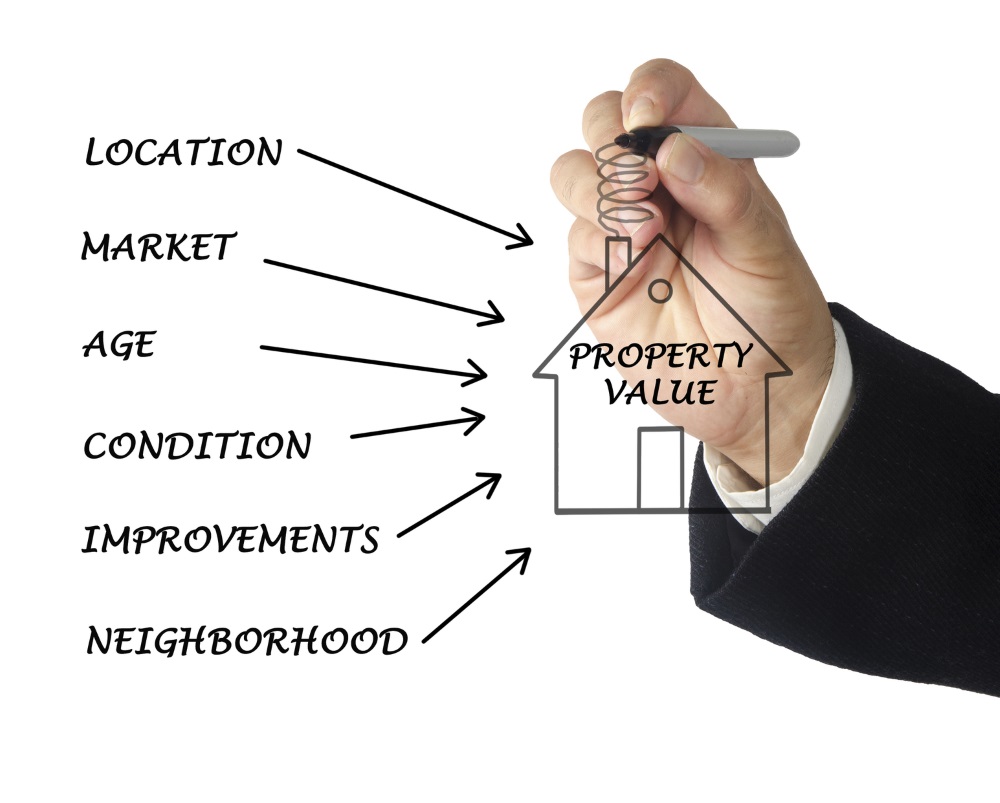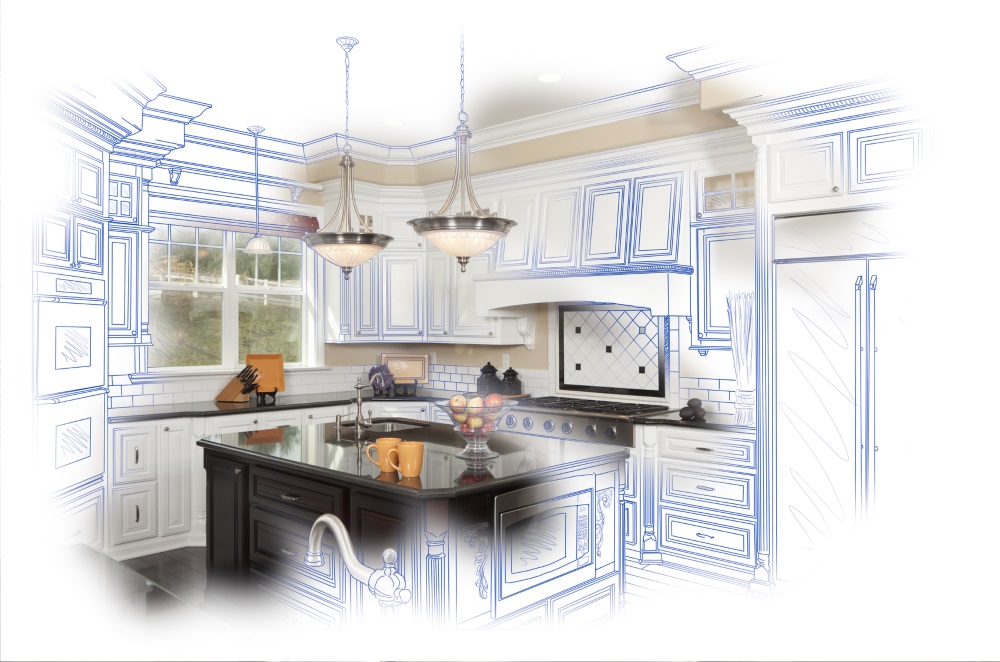


1. Weigh up the options
“There are many advantages to buying off plan. Prices can be significantly cheaper than buying a resale property, often in the region of 20-30%. In addition, buyers can usually request minor structural and layout changes to interior design preferences, which result in a more bespoke home. It also allows the buyer to select the perfect plot or location that best suits their lifestyle, taking into account privacy, views and protection against future development.
However, buying a home, especially overseas, is an enormous commitment and buyers should therefore be cautious. Buying off-plan means waiting anywhere from six months to two years before enjoying the completed property. Therefore, it’s important to carry out a certain amount of due diligence.
Buyers should also ensure that their stage payments are placed into a secure escrow account or are only used by the developer for the construction of their home. Always seek expert legal and professional advice for peace of mind.”


2. Tenerife, Spain
“Buying off-plan is normal in Spain and was very popular before the economic crash hampered the market. However, in recent years, we’ve seen the trend reappear, with 25% of all property sales in 2015 being off-plan.
Recent law changes have seen consumer protection become stronger, with stricter obligations on quality, delivery and materials. This includes heightened liability for developers, easing buyer reservations and bringing about a new era of quality and buyer satisfaction in Spain. It’s important for buyers to be able to trust what they’re buying and who they’re buying from, too.
Full access to information for off-plan properties is key. It helps if there are high-quality CGIs or ideally a show apartment to demonstrate the final quality that is on offer. Often once trust is established in a developer or a specific development, then sales will be strong. We’ve found this to be true with our luxury residences at our Abama Resort in Tenerife.
Top tips
1. Always use an independent lawyer.
2. Buy on a consolidated area, price could be low as a consequence of being in the middle of nowhere (unless you are looking to be far from civilization).
3. Make a list of what you want, and look for it, it should be a place that ticks all the boxes (refuse hard selling).”


3. Key to success
“When advising clients on which development to buy for maximum appreciation, I look for a story. There are many factors that build a good story, including the building’s design and the functionality, services available and regeneration of the area. I also look at current and anticipated arrival of new transport links, the local high street and other developments under planning or construction.
Once we have chosen the right development, it is then important to get in early. Our strong relationship with all selling agents in the market allows us early access to many new developments before anyone else. This is important because developers will nearly always release the units in phases over the course of two – three years, right up to completion of the development.
Getting in early allows us to watch the property grow in value as the development travels towards completion. It also provides us with the pick of the bunch. When identifying the right unit within a chosen development, we consider floor, aspect, floor plan, colour-pallet, price and expected rental return.
A large space and therefore value for money is important, however you must make sure that the space is utilised properly. There is no point having a larger one-bedroom apartment if most of the space is taken up in corridors and hallways.
If it feels unusual to you when you’re considering the apartment, it will feel unusual to the people that you try sell it to in the future. Ultimately, this will limit your market and reduce its growth potential.”


4. Any questions...
“Trying to pick an off-plan development which is likely to appreciate upon completion, is extremely difficult and a high-risk strategy for investors. The main reason is that, often, new builds command a significant premium compared with surrounding existing property prices, so you are buying in the hope that the development will significantly outperform local property prices. You can increase your chances by buying into a low density (fewer than 100 units) development where, if the development proves popular, there is a demand vs. supply imbalance which would lead to an increase in prices. The development also has to tick many other boxes such as location, proximity to transport links, and shops.
Questions to ask
1. How many units are there?
2. What is the break up between one, two, and three bedroom units?
3. Which direction does your unit face? South facing is always going to be the best in terms of light.
4. Are there other developments planned in the area? This will hugely affect the investment potential – if there are thousands of units planned in the immediate area it could significantly reduce the investment potential.
5. Will your view be affected by future development?
6. Are you able to assign your contract? This is crucial if you plan to sell the property before completion as some developers prevent this in the sales contract meaning you have to wait until all units are sold before you can sell yours.
7. What is the anticipated service charge? Again, this is key as a high service charge will eat into your rental yield if you plan to let the property.
8. What are the staged payment plans?
9. How many units have already sold and what is the buyer profile?
10. What other schemes has the developer built? If possible, it’s a good idea to go and visit a previous development to get an idea of the quality you can expect from the developer.”


5. Costa Blanca, Spain
“There is an increase in buying off-plan in Costa Blanca South, particularly among new coastal projects. After the global recession, we are running out of resale properties, so developers need to build new projects. We also have a lot of land available in prime locations, which gives us a competitive advantage compared with other parts of Spain and the Mediterranean.
The benefits
- New modern design with better materials that are adapted to new EU efficiency standards.
- The option to make changes in the property, personalising the kitchen and bathrooms.
- You can also choose a better location when buying early.
- Payment can be spread over a 12-month period with some developers.
The pitfalls
- You can’t move in straight away
- Some areas may not be as developed. It will take time to populate them.”


6. Berlin, Germany
“Buying off-plan has its own risks, but also a lot of potential benefits. In Berlin, the benefits are palpable. Property in the city is constantly increasing in value as infrastructure improves and areas are regenerated. This is especially true in the central districts of Mitte, Chalottenburg, Kreutzberg and Prenzlauerberg.
It makes buying off-plan a sensible option, as within the current German economic environment any apartment or home will be more valuable upon completion than when first purchased. For instance, property prices here in Berlin rose by 10.1% in 2015, meaning that those who purchased their property off-plan in 2014 saw a recognisable return on their investment.
Aside from the obvious financial incentives, there are other benefits for off-plan purchasers, too. Developers often allow purchasers to make adjustments to their floor plans and choose fixtures and fittings.
To avoid any pitfalls, purchasers should thoroughly research who they’re buying from and ensure they trust that their apartment will be finished on time to a high standard.”


7. Mallorca, Spain
“Buying off-plan has many benefits, clients can be involved in the early stages of the build process and therefore are often given the chance to personalise their homes. This results in a home tailored especially to their needs.
Buyers can also enjoy more affordable prices when purchasing off-plan, despite the fact that they are buying a new and often high- specification property. Always purchase through a reputable developer when looking to buy off-plan, which ensures high-quality materials will be used throughout the property and added protection to your investment should the project stall.”


8. Algarve, Portugal
“When the global crisis first happened in 2008 most building works stopped in the Algarve. The majority of builders, especially foreign ones from Brazil, Ireland and England ceased construction.
However a few developers continued to build, one of them being in Lagos - Algarve. This has resulted in a considerable number of new homes available that were built in 2007 and 2008, so almost eight years old.
Usually, when you buy a property it is all about location, the view, being front line to the ocean, proximity to the beach, the sea etc. To find that in the Algarve, you need to buy a resale property that is 20-years-old or buy off-plan. For older homes, the prime location will often come with the cost of renovating to bring it up to date.
In this market, it is all about high quality. Most buyers will pay the "asking price" for the home and then they customise it. They will choose the kitchen, the tiles, energy and heating system, plus upgrade surround sound and intelligent home systems. Sometimes, they add a private pool, too.
Research the history of the developer and the company. It is important to find out if the project is guaranteed by the bank, too. When the bank guarantees an off-plan property, you can secure better finance, mortgages and obtain a five-year assurance against damage.”


9. Talk to the experts
“Many people believe incorrectly that if they buy a property off-plan abroad, they are exposed to less risks than buying a resale property. This could be because they think about the issues that may have arisen on resales over time, including mortgage issues, ownership rights and extra hidden charges.
It is incorrect to believe that buying a new-build property off-plan means it comes with a clean sheet. From a legal perspective, there are a number of points to consider. These include planning and permission licences, contracts, property specifications, delivery dates and protection of any money paid before completion. It is essential to understand the financial factors associated with buying off-plan in the given country, to make sure that any money paid in advance is protected as much as possible.”


10. Bouncing back
“Buying off-plan really had a comeback towards the end of 2013. Previously buyers were much more cautious and held back until a home was ready to view before making an offer. But now this area of the market is booming. The benefits of off-plan purchasing include a choice in plots, for example a buyer is more likely to secure a home with a corner position or with the best views in a newly-launched development when purchasing off-plan. Purchasing at this early stage can also offer a discount in comparison to the price of the finished property.”


11. The Lake District, UK
“Buying off-plan is not typically in the British buyers’ DNA. They prefer to see the finished product and take a look around before committing to a purchase. However, the market is changing and more and more Brits are buying off-plan, especially in major towns and cities, where location is everything and competition is high.
But there is a risk when buying off-plan, people shouldn’t just buy from anyone. They need to be sure that the developer consistently delivers homes on time and to a high standard. This was one of our biggest challenges when we launched the first phase of our inaugural development – Viver Green in the Lake District. As there were no other projects to back us up, we needed to make sure that buyers really understood and bought into what we were trying to do.”


12. Is the price right?
“This type of investment is appealing due to the substantial capital gains that are potentially on offer. If you choose this route, you can secure a property at today’s prices, while generating a considerable return on investment, if it rises in value before completion. You can stage payments throughout the build process if the developer allows, too.
The success – and potential returns – of an off-plan investment can often balance on its surroundings and high levels of infrastructure in the area. Planned or existing road networks and economic drivers, such as universities and employment hubs, help feed off-plan property developments. This makes them attractive to would-be investors, too. Do your research, and look into plans for the area to ensure you’re investing in the right place.
Due diligence is the key. It’s important to thoroughly research the development and its timeline. Check the portfolio and track record of the developer. Ensure there is appropriate insurance in place to cover the build’s duration; and research other properties the developer has built.”


13. Made-to-measure
“Buying off-plan enables buyers to personalise the property to suit their individual taste. Prospective buyers should always ask what customisations are available. For example the colour of the interior walls, additional light fittings, the kitchen layout.
When purchasing off-plan, we recommend buying through a trustworthy builder, with legitimate guarantees in place and a customer service department, so buyers can communicate regularly throughout the process.”


14. Track record is key
“Buying off-plan has many advantages as buyers can benefit from the latest build technology, which ensures their property meets the latest building standards. In addition, developers often give off-plan buyers the option of having a final say in their property’s layout and design, allowing for a tailored living space. The monetary benefit of stage payments, presents a safe way to buy, too.
With all its benefits, however, buying off-plan can be a daunting thought for some buyers. To avoid disappointment, we strongly recommend that you run a thorough check on the developer. Find out which developments they have already built successfully or if there have been any known complications with previous projects.”


15. A waiting game
“The benefit of buying a property off-plan is that it tends to be for below the usual market price. However, the trade-off is that you invariably have to wait until it is completed before you can move in, which in some instances can be several years. As construction takes place, there is usually a chance to add your own specifications, so when it is complete, you can move straight in, having already personalised your space.
The main cons are the countless factors that can affect the build time, such as external contractor delays, or bad weather, which may cause holdups. This should always be factored into a contingency plan. However, buyers are financially protected from such events because, when the contracts exchange, the money usually sits in an escrow account to keep it secure. If either party breaks the contract, the party who broke it are in danger of losing their deposit, plus the added legal expenses.”


16. Homes of the future
“Buying off-plan is popular, especially as there are so many developments being built in London. You do need to know what you’re doing though; when choosing which development to buy in, do your research on the location and also the developer itself. Check whether the developer has a good track record for producing high-quality work.
Once you know which development you want to buy in, choose your ‘unit’ carefully. Study the layout of the development and make sure you have a good understanding of the outlook of the properties you’re considering. Also remember that developers often release units for sale in stages, so even if you’re not offered a property on a particular floor because it hasn’t been released yet, there’s always an opportunity to negotiate. We secure unreleased units for clients all the time; it’s just a matter of knowing that it can be done, and having a good enough relationship with the developer to do it.
When it comes to paying for the property, you usually pay 10% of the purchase price on exchange and then additional amounts in stages as the property gets closer to completion. Do be careful though; while it can be years between the first and final payments, personal circumstances do change. Therefore, make sure at the outset you are confident of having the funds available to complete the purchase in line with the estimated completion date. It depends on the terms of the contract, but a purchaser can be informed to complete at very short notice, sometimes in as little as two weeks.”


17. Do your research
“Fundamentally, buying property off-plan means buying before the development has really started. And where the house builder has not yet completed a show home or sales office to enable the buyer to get a feel for the design and quality of the finished home.
This might sound risky, but the benefits far outweigh the risks; generally, this allows you to choose from the available plots. For example, the plot with the best views, best position for getting the sun, the most private plot or perhaps one with a good garage and driveway. All these considerations are important and buying off-plan allows you to choose the best options.”


18. What type of buyer are you?
“Two types of people purchase property off-plan: those who want to buy a home to live in, and those who want to use property in the buy-to-let sector.
There is an increase in buyers choosing luxury properties off-plan. Two to three years ago, we wouldn’t have seen luxury homes for more than £1 million, selling before they were built. Buyers are looking to purchase their property earlier than before, which means that they can pick the best plots in developments. Plus, prices can often increase before completion, so it can be beneficial to buy early.
Top tips
1. Research the developer and agent thoroughly.
2. Check their reputation to ensure that they have completed other developments in the past without any issues.
3. When you have decided to buy, make sure you confirm the specifications.
4.Find out about any service charges, so there are no surprises later.
5. Speak to your mortgage provider as they may offer a six month availability, but the build may take eight months to be completed.”


19. Keep an open mind
“Buying off-plan is not for the faint hearted, orphans or widows. There are perils attached to it if you properly understand the dynamics or details of the process. However, for the right product with the right developer, there could be advantages. You would be well-advised to have a good surveyor and solicitor to look at the development and documents before purchasing.”


20. And finally…
“It’s not everyone who has the courage or confidence to buy a brand new home without the first bricks being laid. But if you are brave enough, there are huge benefits to be gained by cherry picking your preferred plot from the drawing board. These can include:
- Selecting a plot with a sought-after south facing garden.
- Contemporary kitchens and bathrooms
- Choosing your preferred taste in bathroom wall tiles.
- Having a blank canvas from which to plan a new home
- New materials used in the construction process also mean that new homes are more energy efficient than their older counterparts. 10-year National House Building Council (NHBC) protection.”

Stuart was the Telegraph's Property Editor for five years, where he transformed their online platforms. Now he is an editor, writer and digital strategist for Everything Overseas. He specialises in places, prices and properties in the world of real estate. He is also a director of Everything Overseas, overseeing the direction of the channel.
More articles by Stuart Penney | View all our authors
Or you can read more about your chosen country:
